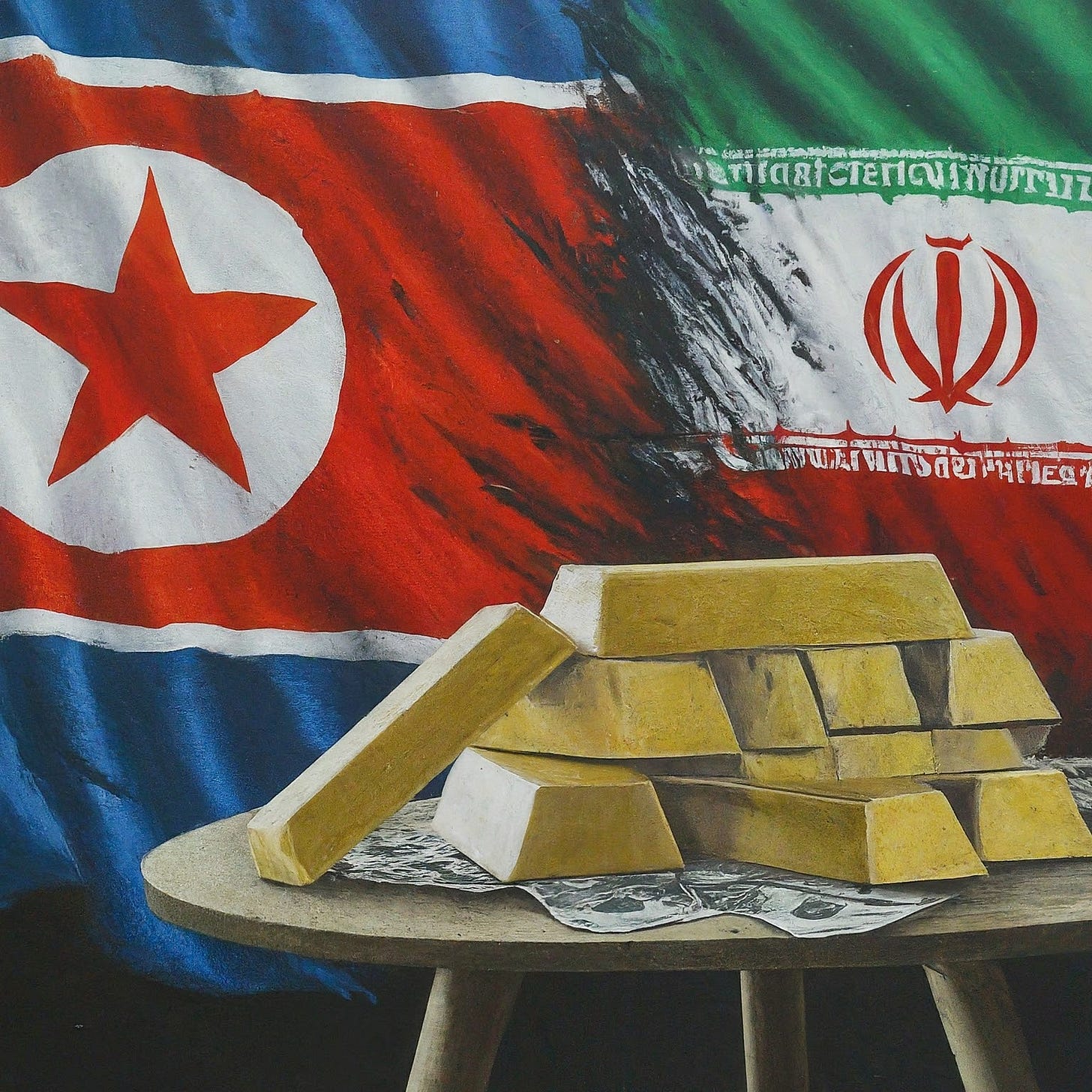DPRK trade officials seeking luxury goods; Half of NK shells to Russia no good; Iran needs foreign airplanes; Tehran seizing US-bound oil
Prohibited Transactions for the week of 4 Mar 2024 (#39)
North Korea
According to covert reporting from inside North Korea, trade officials in Pyongyang have increasingly been ordering luxury goods — such as bags, clothes and shoes — from their counterparts in the PRC, to meet the demands of North Korea’s elite. //Though the movement of luxury goods into the DPRK may not be quite as alarming as ballistic missile parts entering the country (see Issue #38) there are still two worrisome parallels. The first is that North Korea continues to have the capacity to smuggle in physical goods into the country. The second is that — much like those components for ballistic missiles — the luxury goods are likely intended for end users based in the PRC, but are then sold to Chinese traders who move the goods to the DPRK. Unless the trader openly admitted to sales staff that their purchases are for North Koreans, it would be difficult for a company to catch this sort of activity, without resorting to questions that customers may find intrusive.
Two US officials recently made statements about Washington’s willingness to consider “interim steps” on the path to the “complete denuclearization of the Korean peninsula.” //The US State Department’s spokesperson denied this new language was a policy shift, but could this mean some form of sanctions relief for Pyongyang as an enticement for talks?
Ukrainian military officials say that approximately half of the 1.5 million shells Russia imported from the DPRK are duds. Kyiv, and other analysts believe that in exchange for the artillery, Moscow is sending missile, submarine, and possibly nuclear weapons technology to Pyongyang. //If 50 percent of the artillery is generally useless, what is Russia paying for?
Beijing is unlikely to share Washington’s concerns about the increased military cooperation between the DPRK and Russia, as it sees their growing relationship as helping to undermine the US’ position in Europe and Asia. //If this is accurate, don’t expect Beijing to get tougher on enforcing sanctions against the DPRK.
--
Photos released by the DPRK’s central news agency shows Ford Motor Co. vans as part of Kim Jong-un’s motorcade. The vans were likely produced in North America after 2021.
North Korean 4G cellular service — reportedly launched in late 2023 — has been detected as far south as the inter-Korean border.
Iran
Iran’s Civil Aviation Organization (CAO) is contemplating using foreign airlines to help cover a gap of 300 passenger planes needed to meet domestic passenger demand. Due to US sanctions, domestic airlines are unable to procure spare parts for repairs of their aging fleets. //It is not clear if the head of the CAO is saying they want to purchase more foreign planes, or just sign lease agreements with foreign airlines to use their planes on domestic routes. Despite US sanctions, there are previous instances (see Issues #2 and #7) of Iran being able to procure used airplanes and helicopters from foreign countries.
Iranian courts have given approval for Tehran to confiscate USD50 million worth of oil being held on a US-bound tanker, the Advantage Sweet, which was seized in April 2023 by Iranian authorities. Iranian media reports the seizure is due to US sanctions which prevent specialized medical equipment from being imported to Iran to treat a rare skin disease, epidermolysis bullosa (EB). //The issue regarding medical dressings for EB is a long standing one, but in this case it appears to be a pretext for the Iranian seizure of the Advantage Sweet, as Tehran’s actions occurred shortly after the US seized the Suez Rajan, which was accused of smuggling Iranian oil.
--
An Iranian proposal for the BRICS group of nations to create an alternative to the SWIFT payment systems, as well as a FATF-like organization that counters money laundering and terrorism finance, has been added to the agenda of a future meeting of BRICS ministers of economy and heads of central banks.
Iran wants to position itself as a regional energy hub and route for distribution and transit of gas between producers and consumers, and invited gas exporting nations to cooperate on joint investments and exchanging technical information.
A Pakistani official stated that US sanctions may not apply to the completion of an Iran-Pakistan gas pipeline (see Issue #38), as the 80km portion being completed by Islamabad is in Pakistan’s territory.
Afghanistan’s Taliban government has called for opening an economic representative office in Iran’s Chabahar port.
Iran and Algeria signed six cooperation agreements, promoting cooperation in “the oil and gas industries, scientific and technological activities, knowledge-based economy, tourism industry, sports, and the media sector.”
Iran is in talks with Iraq and Syria about the establishment of a trilateral joint free trade zone. Additionally, the Central Bank of Iran has approved the establishment of a joint bank with Syria.



